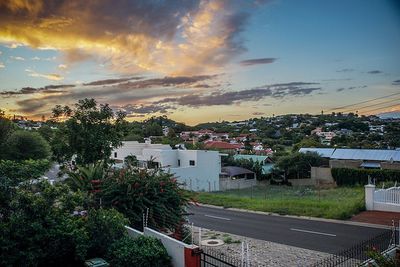On 14-15 November, 2018, members of the West African Science Service Center on Climate Change and Adapted Land Use (WASCAL) and the African Monsoon Multidisciplinary Analysis 2050 (AMMA-2050) came together with city, national and regional decision makers to develop a roadmap to strengthen linkages between researchers and policymakers in West Africa. The workshop took place at the WASCAL Competence Centre in Ouagadougou, Burkina Faso.
With a focus on open discussion, most of the workshop took place through exercises undertaken in small groups that drew in the wealth of the expertise present. Groups conducted problem tree analysis and network mapping to uncover the underlying reasons for missing links between researchers and policymakers in enabling climate science to better support decision-making in West Africa. Keynote presentations focused on strengthening resilience to climate-related risks within the disaster risk reduction and agricultural sectors across West Africa. Participants identified researchers’ capacities, technical support to policy makers, and resources for strengthened science-policy-practice engagements as key opportunity areas.
One group’s problem tree analysis of ‘What are the missing links between researchers and decision makers to enable climate science to better support decision-making in West Africa?’.
Three knowledge-exchange approaches were discussed to bridge the science-policy divide. The first was the use of a board game, the ‘Plateau Game’, to gather and share potential impacts of future climate change. The second approach was a form of participatory theatre, called ‘Theatre Forum’, employed to discuss power relations between different actors. The third was the ‘Innovation Platform’ approach where networks of actors concerned with a particular value chain collectively consider technical, social and institutional constraints in order to create innovation. The successful use of these approaches demonstrated that games and theatre can be entertaining and effective ways to engage with decision makers.
Farmers playing Plateau Game. Source: CIRAD
Workshop participants also proposed practical steps for WASCAL to strengthen its engagement with policy makers, including:
Incentivising researchers to engage with policy- and decision makers;
Developing a module on communication and policy engagement in WASCAL graduate schools;
Reinforcing WASCAL’s Public Relations Office and Communications Unit, strengthening the organisation’s Communication Strategy with multiple approaches for public engagement and dialogue;
Establishing a science-policy broker in WASCAL to identify entry points and develop tailored messages for key policy processes, as well as monitoring and responding to significant emerging issues, such as major flood events;
Strengthening WASCAL’s Memoranda of Understanding with partnering institutions;
Identifying regular opportunities for ongoing training and sharing of emerging learning on approaches that support effective science engagement with policy- and decision makers;
Conducting a survey of decision makers’ perceptions of WASCAL, undertaking a cost-benefit analysis to demonstrate the value of evidence-based policy making, and developing a joint training for policy makers with the Economic Community of West African States (ECOWAS) to strengthen their capacities to make effective use of scientific findings.
While the challenge of the science-policy divide is often raised, few events seriously address it or provide practical ways of strengthening researcher engagement with policy makers. Dr Arona Diedhiou, Chair of the WASCAL Scientific Advisory Committee (SAC), recognised the workshop as a significant initiative for developing strategic regional linkages between researchers and policymakers.
The full workshop report is publicly available here.
Theatre Forum Organized in Senegal. source: ISRA, Senegal


